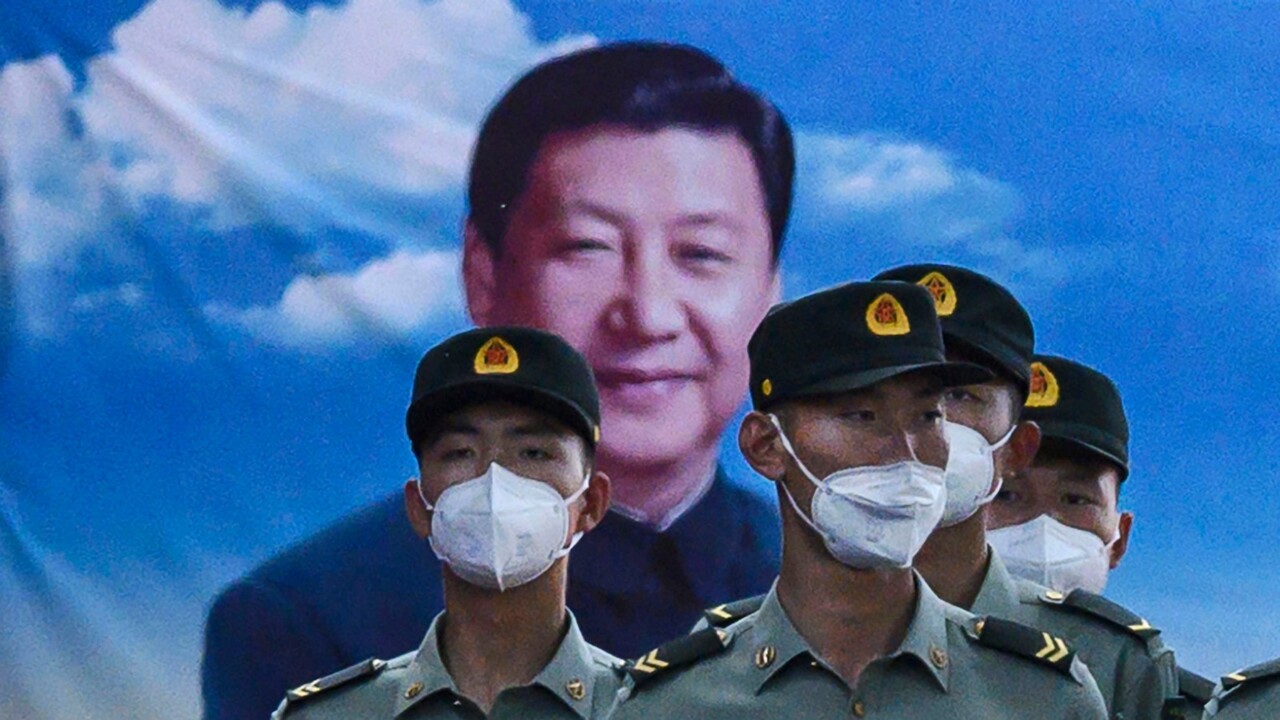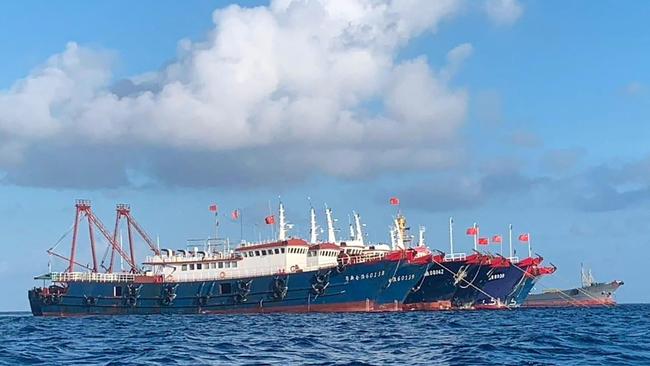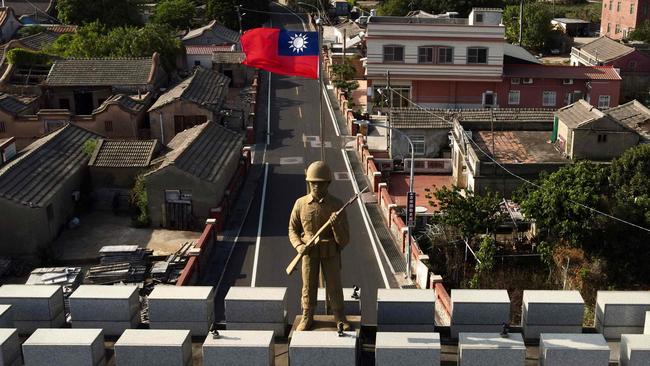Editorial: Risk of ‘conflict’ in the Indo-Pacific region is rising
As millions of Aussies commemorated Anzac Day, remembering the loss and hardship of war, the spectre of conflict in our region loomed large yet again, writes the editor.

Opinion
Don't miss out on the headlines from Opinion. Followed categories will be added to My News.
As millions of Australians commemorated Anzac Day yesterday, remembering the loss and hardship of war, the spectre of conflict in our region loomed large.
China’s increasing assertiveness is being felt throughout the region and its recent action around Taiwan has world leaders on edge.
Newly promoted Defence Minister Peter Dutton yesterday cut through the diplomatic chatter to explicitly state that a China beginning a battle over Taiwan “should not be discounted”.
Not only has the rhetoric from Beijing towards the island been heating up, so too have its actions.
Chinese warplanes flew over its shores in menacing displays earlier this month, while satellite images have spotted military bases constructed on artificial islands in the disputed South China Sea.
The history between China and Taiwan is complex, while the approach of Australia and much of the rest of the world towards the dispute is more so.

The Chinese Communist Party sees Taiwan as a breakaway province and it has long-sought to bring it back under its rule, with President Xi Jinping becoming more proactive in efforts to do so.
Australia officially does not recognise Taiwan as a sovereign nation, but maintains unofficial dealings including diplomatic visits from government officials.
US President Joe Biden has taken a more active eye in the Asia Pacific region, including Taiwan. But while the US has supported Taiwan, including with political and military support, it has made no agreement to take action should Beijing launch a direct invasion.
Regardless of whether the US and others become involved, such an action would have reverberations through the region and put further strain on our relationship with China.
Foreign policy experts have speculated that Beijing will likely seek to use military intimidation and even blockades to bring Taiwan back under its control before it considers more direct action.
Historic Chinese general Sun Tzu wrote in his book The Art of War that supreme victory comes from being able to “subdue the enemy without fighting”.

China has bluntly warned Canberra not to interfere in what it sees as its own sovereign matters, including the national security crackdown in Hong Kong which ignores the One Country, Two Systems deal, its push to retake Taiwan, and human rights abuses in Xinjiang.
Mr Dutton was right when he said yesterday that Australia needs to continue to be a good neighbour in the region, working with its partners and allies including China.
Australia treads a difficult path, between its largest trading partner in China and historic ally with the US, as the two global super powers compete for strategic dominance.
The nation has already copped some of the wrath of Beijing through a series of trade sanctions, including on beef, coal, timber, wine, seafood and more.
But Canberra has been willing to hold firm against Beijing’s bullying, while making it clear it wants the strategic partnership between the two countries to return to a more friendly footing.
President Xi’s increasing assertiveness and the continued expansion of the People’s Liberation Army since 2015 continue to cause concerns around the world.
Prime Minister Scott Morrison has warned that the “risk of miscalculation and conflict” in the Indo-Pacific region is rising.
The nations of the world must work together to make sure this course is averted.



